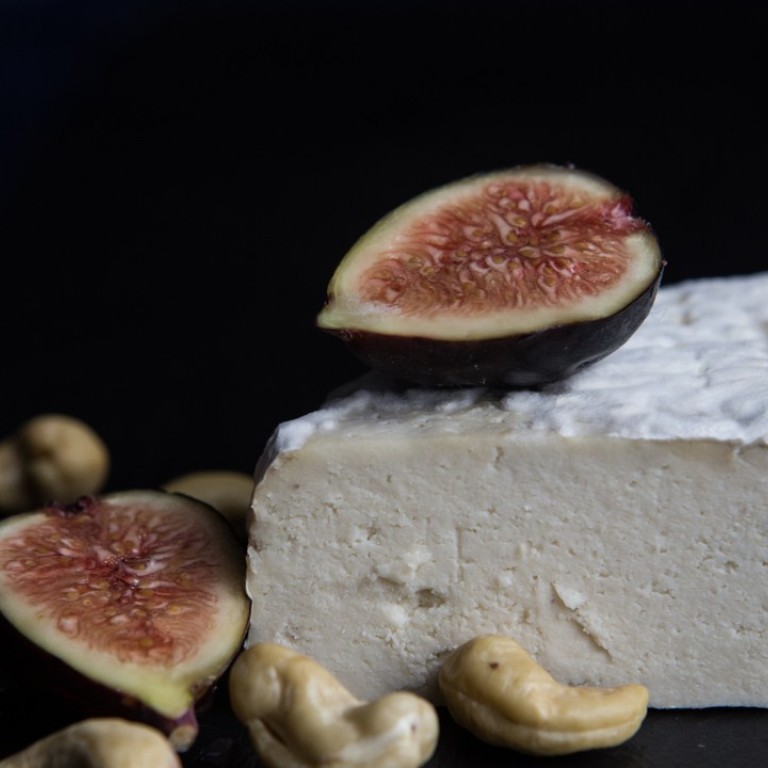
Vegan cheese revolution – now it tastes and feels like the real thing, and even non-vegans enjoy it
For many people who become vegan, cheese is one of the hardest things to give up. Now, using new fermentation techniques, artisans are creating non-dairy versions of everything from Parmesan to Cheddar, Gouda to burrata
There’s a revolution happening in the cheese world, and it doesn’t have anything to do with dairy.
For decades, vegan cheese has had a bad rap. It was well deserved. Rubbery and often with an aftertaste compared to pencil erasers or Play-Doh, the plant-based varieties just did not stand up to the real thing. Now, a new generation of vegan chefs and food entrepreneurs has figured out what was missing: fermentation.

Crafting vegan cheese using traditional techniques requires patience, just as with dairy-based cheese; the advantage is that a plant-based cheese can take less time to make, but it still requires a few days or even weeks to develop complex flavour.
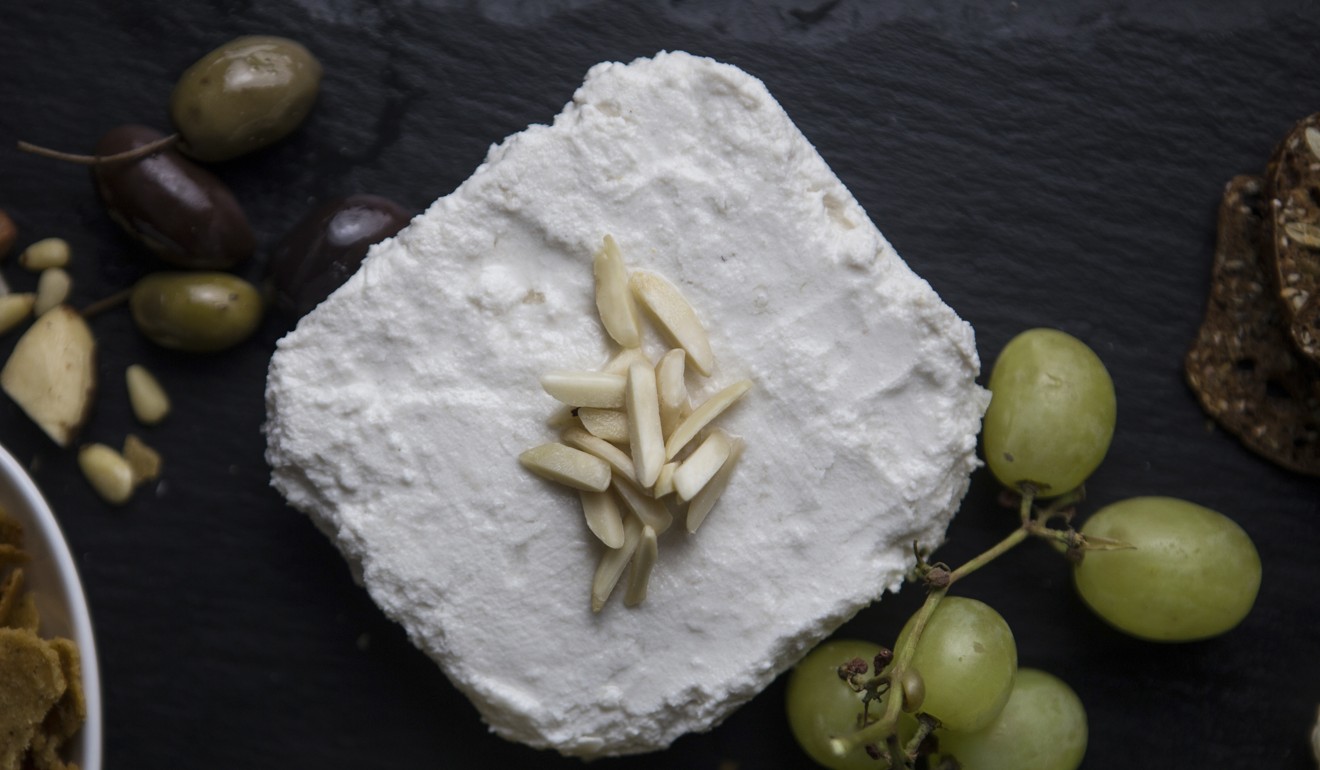
Kale Walch started experimenting with vegan cheese recipes about four years ago, after being inspired to follow his sister Aubry’s plant-based diet. “I couldn’t stay vegan without a good cheese replacement,” he says.
Green Monday’s David Yeung strikes another blow for healthy eating
After some trial and error, the siblings decided to take their products – handmade with a base of high-quality soy milk and coconut oil – to their local farmers’ market. They were shocked by the enthusiastic response. A crowdfunding campaign soon led to a private investor and the opening of their bricks-and-mortar store, the Herbivorous Butcher, in early 2016. They now make 180kg of vegan cheese each week, in 3.6kg batches, including dill havarti and pepper Jack.
“We were just making the food we were hungry for,” Walch says. “But it turned out that a lot of people were hungry for the same stuff.”
Close to 75 per cent of Walch’s customers are non-vegan; instead, they have concerns about factory farming, sustainability and global warming. “It’s getting harder to avoid the facts about the environmental impact,” Walch says. “People are starting to catch on a little bit, and our products are probably the easiest way to bridge the gap.”
“A generation ago, this was a lifestyle choice,” says Neal Barnard, author of The Cheese Trap and president of the Physicians Committee for Responsible Medicine, a vegan research and advocacy non-profit based in Washington. “But now it’s also about the impact on the environment and animal welfare.”

“Cheese has a salty, creamy quality,” Schinner says, and good vegan cheeses should, too. “You want them to be able to melt, to enhance the flavour of dishes, to provide that taste memory.”
Meet the meat-free Hong Kong parents on a vegan mission
The concept of fermentation came to her 35 years ago when she was living in Japan and saw a television show about nuns who were changing the flavour of tofu by burying it in ash or marinating it in miso. She combined miso, white wine and mirin to create a marinade for tofu, and over the years took the same ingredients and started using them to flavour purées made from nuts.
By allowing cashews, almonds and other nuts to ferment at room temperature for a few days mixed with miso and various other ingredients, Schinner found that deeper flavours could be developed – similar to those that might be found in a sharp Cheddar or buttery Gouda.
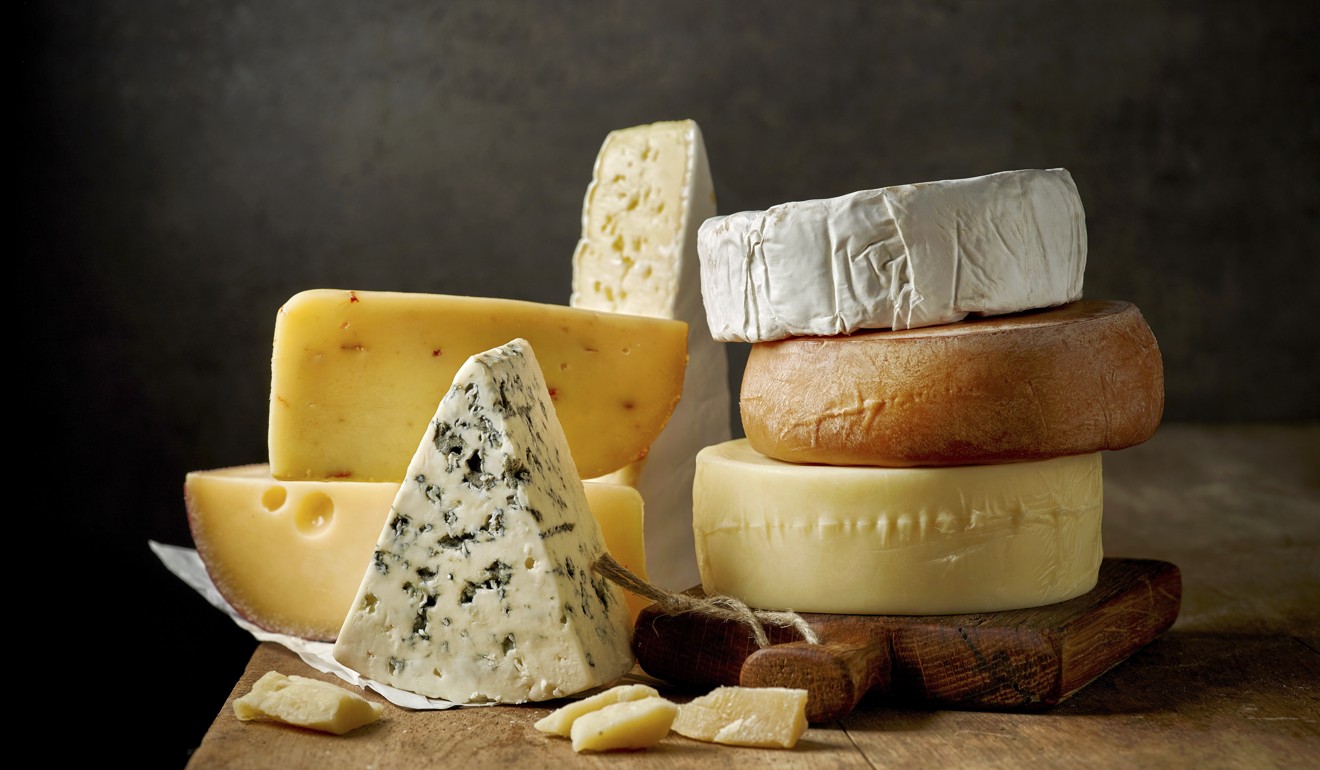
“Cashews are the most neutral,” she says, “like cow’s milk. Goat’s milk is stronger in flavour, so almonds are a good substitute because they develop a funkier flavour when they’re fermented.” Brazil nuts turn out to be a surprisingly delicious stand-in for Parmesan, offering an earthy taste that is also fatty and slightly gritty on the tongue. Schinner suggests using sauerkraut brine as a fermenting liquid for the nuts, which adds a deep saltiness and tang.
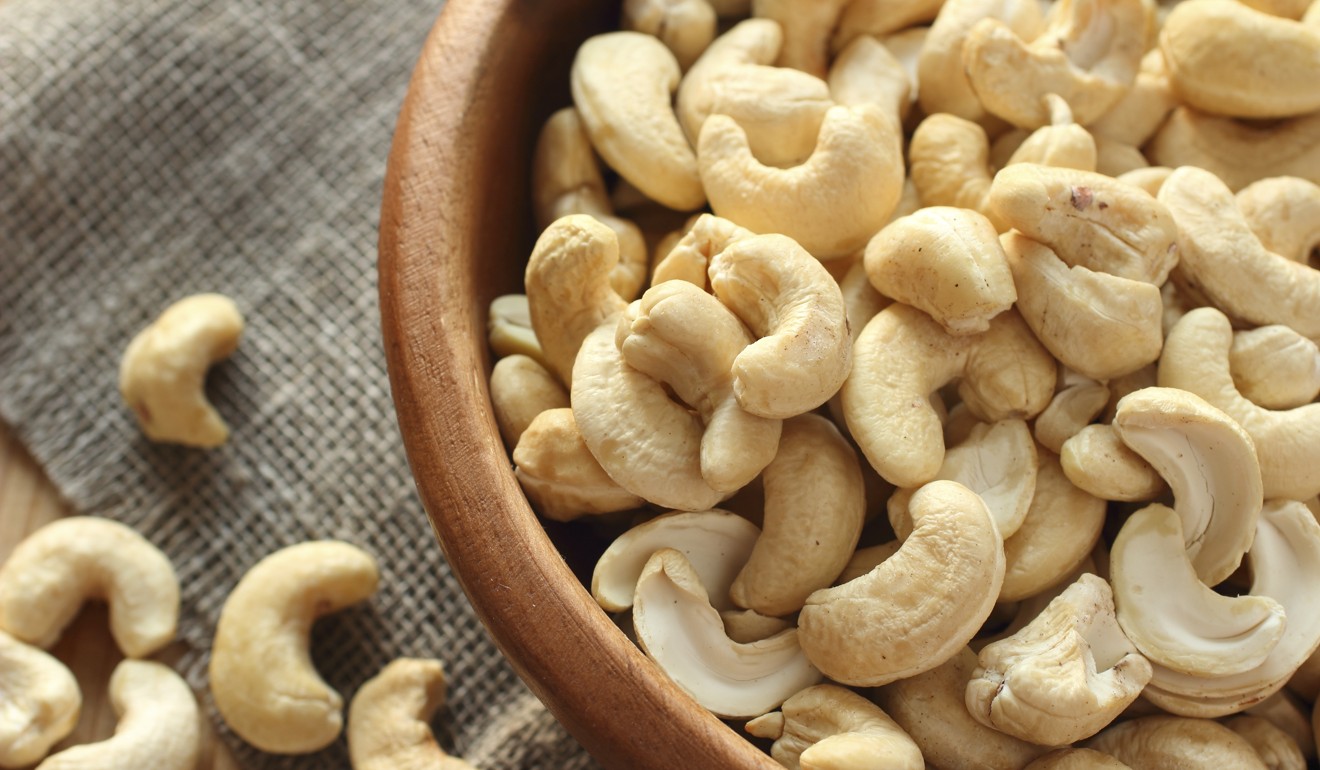
“I just fell in love with it,” Petersan says. “I started to play around with it, tweaking the recipe, and watched about a million videos on making burrata.” The result, which can be found on the menu at Petersan’s vegan diner, Fare Well in Northeast Washington, features the same shiny smooth outer shell as the original, with a satisfying burst of creamy filling. When presented on a bed of peppery arugula with fresh pesto and toasted baguette slices, the almond-cashew burrata that might fool even the most discerning cheese head.
How a Beijinger brought artisanal French cheese-making to China
“There’s this whole psychology of food, and that’s part of what we’re doing,” she says of vegan cheesemakers, “making these foods that are not dairy and presenting them in a way that’s beautiful and palatable and fun.”
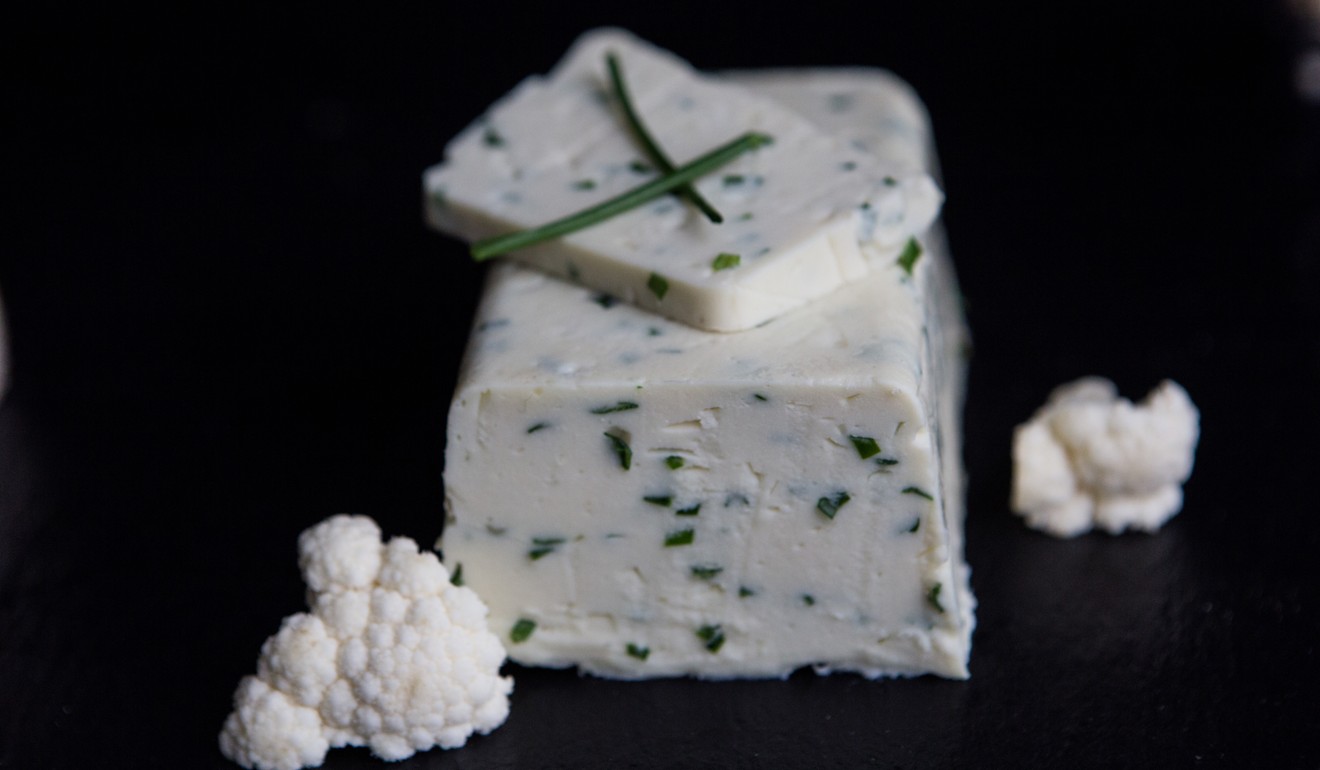
“You can make a plant-based product that’s almost identical to a dairy-based cheese using the same process,” Petersan says, “because it’s not about the dairy. It’s more about the science and processes behind it.”
Away with the dairies
Some of the non-dairy cheese products available in Hong Kong
Bragg Nutritional Yeast
This product is an inactive yeast grown with beet molasses, sugar cane and water, then fortified with vitamin B12. It adds a distinctly cheesy flavour to many recipes and is delicious sprinkled straight over pasta and popcorn. bragg.com.
Daiya
Recently bought by the Japanese pharmaceutical company Otsuka, this brand produces shredded cheeses that have become must-haves for makers of vegan pizzas. Its line includes meltable slices and cheesecakes. daiyafoods.com
Sheese
Produced on the Isle of Bute in Scotland since 1988, produces creamy spreads, hard, melting and sliced versions of its award-winning products, based not on nuts, but on coconut oil and GMO-free soybeans. Its range includes vegan mozzarella, garlic and herb, smoked cheddar, blue, Greek, cheddar with caramelised red onion, and Wensleydale with cranberries.
Where to shop?
Look for Miyoko’s Kitchen and the three brands listed above in Green Common (greencommon.com), Just Green (justgreen.com.hk), Loving Hut (lovinghut.com/portal/hk) and other natural and organic food shops in the city.

